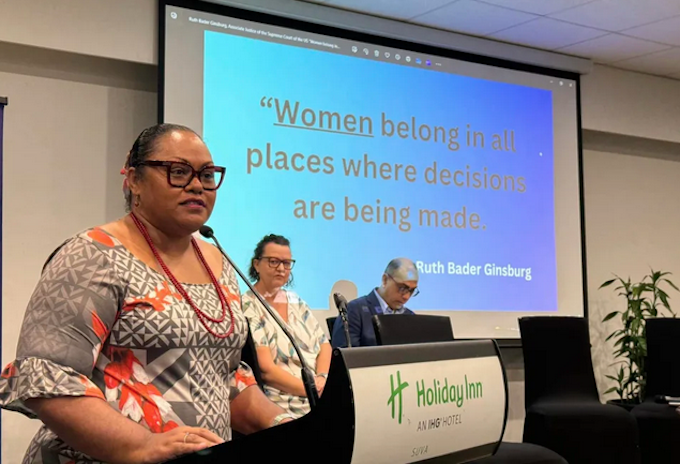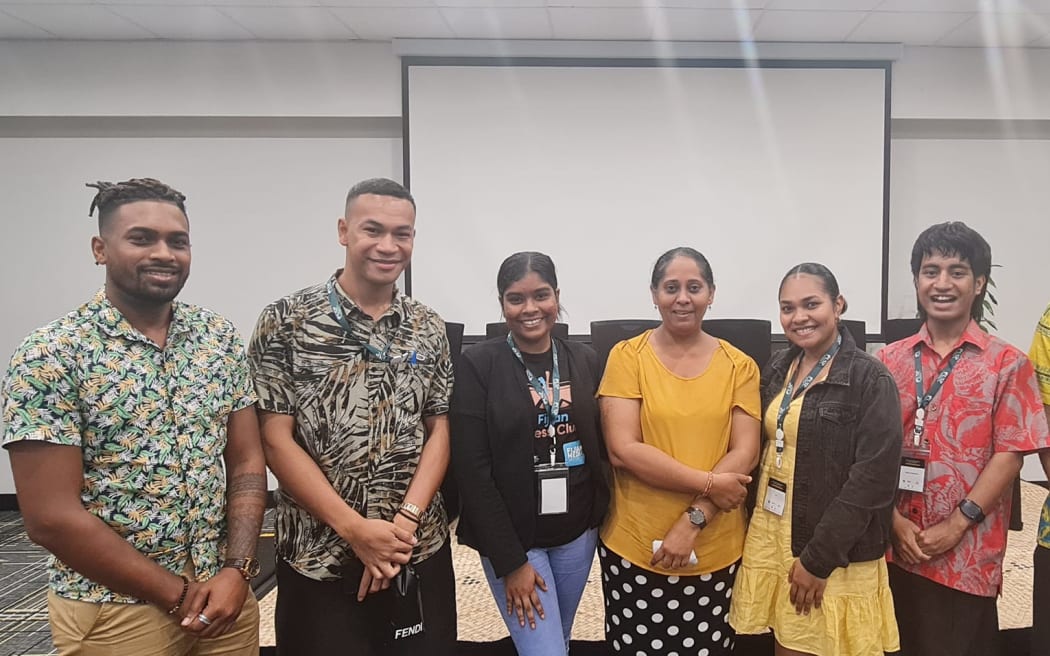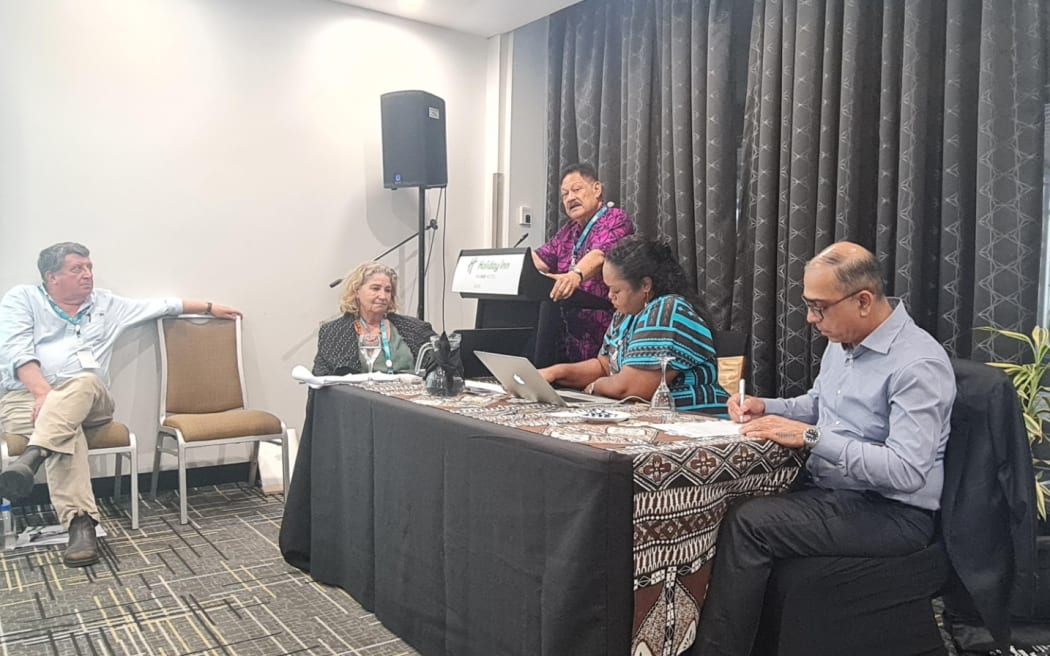
By Moera Tuilaepa-Taylor, RNZ Pacific manager
A group of regional and international media representatives met at a forum in Fiji last week to discuss some of the challenges and opportunities facing journalists in the Pacific.
The three-day conference brought together people from the media industry, academics, civil society, and other interested parties.
A budding Fiji journalist Shivaali Shrutika said that newsrooms needed to evolve with the times.
“Transformation is important, wherever you are, and this is my observation,” she said.
“But in any space we work, particularly in mainstream media, we are reaching out to the communities that we want to become the voice for, but first we need to work on ourselves to be better people to understand them and then portray their minds and their thoughts to our audiences.”
She said every journalist and person involved in the newsroom should have a positive environment to work in.
“Because in journalism there is pressure, and there are deadlines in that space, it is important to have positive energy and a flexible environment to work in where everyone’s work is appreciated, especially for those trying as it is important to help boost people’s confidence and create those spaces.”

Lack of support
She said some young journalists left the profession due to a lack of support from more experienced reporters.
“Young journalists need this as they are new to the industry and unsure of their job, and when they are ignored, it can lower their confidence.”
Kaneta Namimatau is a final-year journalism student at the University of the South Pacific’s journalism programme.
“This is the biggest media conference I have been to and the first one in Fiji in 20 years,” he said.
He said the stories of intimidation and harassment that journalists in Fiji had faced, under the Media Industry Development Act, were very challenging to hear.
For him, the most powerful discussion at the conference was a panel on the “prevalence and impact of sexual harassment on female journalists”.
The sexual harassment of women journalists in Fiji is a major problem, according to a study published earlier this year.
‘Disheartening’ experience
“I found that disheartening to hear as it is something that I would hate for my sisters to have to experience in the workplace.”
Namimatau said the conference reinforced his decision to become a journalist and work in the Fiji news arena.
“I think I can contribute more to Fiji and tell the stories of the Banaba people, my people. I also want to represent my people from Rabi.”
The conference included academics, like USP’s associate professor Shailendra Singh, who was chair of the Pacific International Media Conference.
Dr Singh said it was a critical time for journalists in the region.
“Mainly, for two reasons, the digital disruption that we know has siphoned off huge amounts of advertising revenue from the media industry and mainstream media, as well as covid-19 which worsened the situation.
“I think most media organisations are struggling to survive.”

Dr Singh is coordinator of the journalism course at the University of the South Pacific.
He said the papers tabled and some of the discussions that took place would be published in Pacific Journalism Review.
The 2023 lifting of the FijiFirst government’s 2010 draconian media act, which involved constant censorship, has created a new environment in which Fiji journalists no longer operate in fear.
No ‘shying away’
Asia Pacific Report publisher and editor Dr David Robie said this was the sort of conference that Fiji needed right now” — a forum that did not “shy away” from the challenges facing reporters in the region.
Dr Robie described the panels, in particular the discussion around sexual harassment in Pacific journalism, as the best he had ever attended.
Other panels dealt with similarly difficult topics such as climate change, and stress/burn-out within the industry.
This is the first conference of its kind in Fiji in 20 years, and Dr Singh hopes that the delegates can take back what they have learned, to their newsrooms.
This article is republished under a community partnership agreement with RNZ.














































